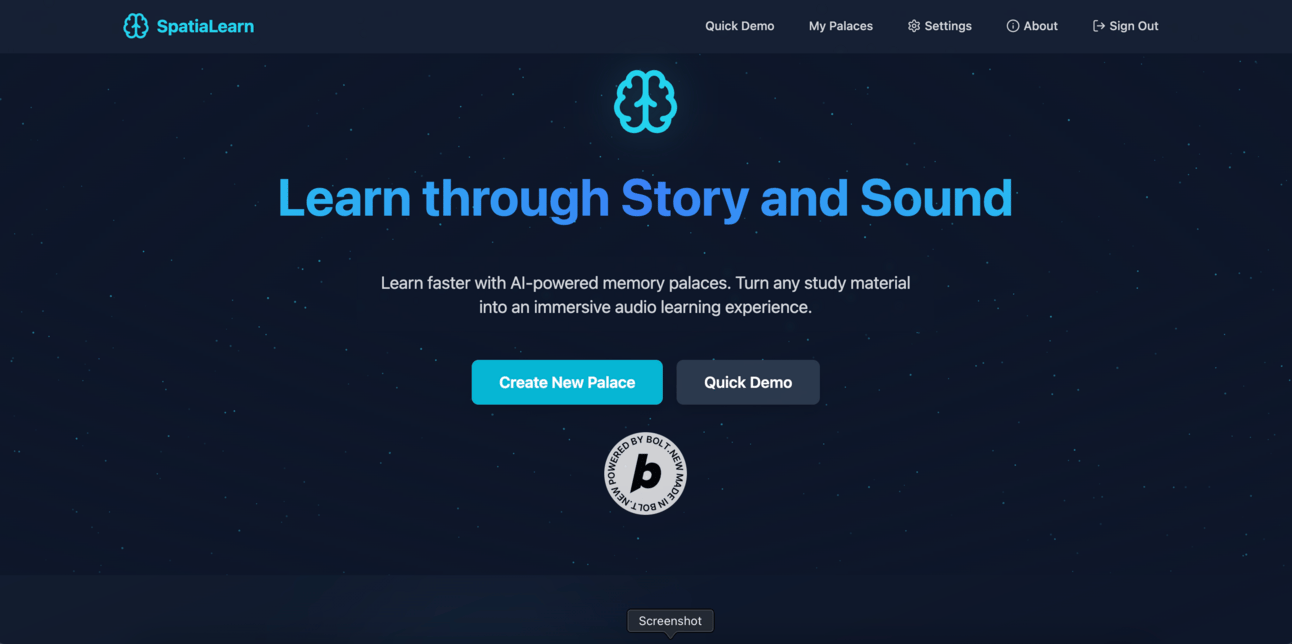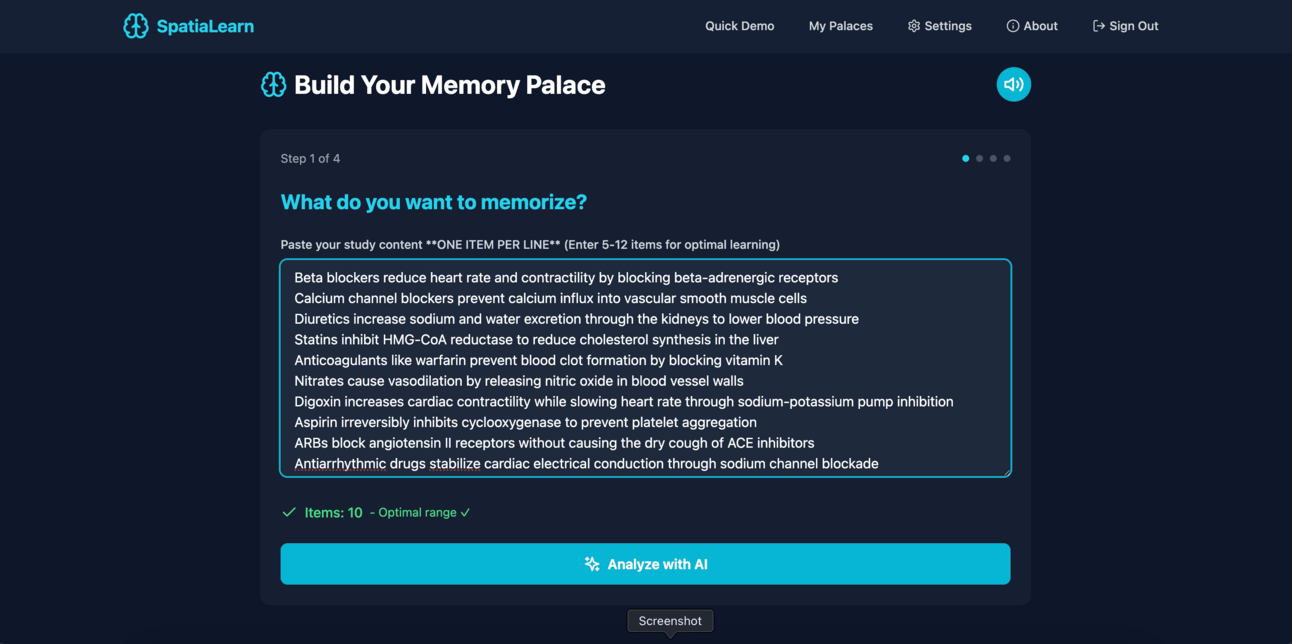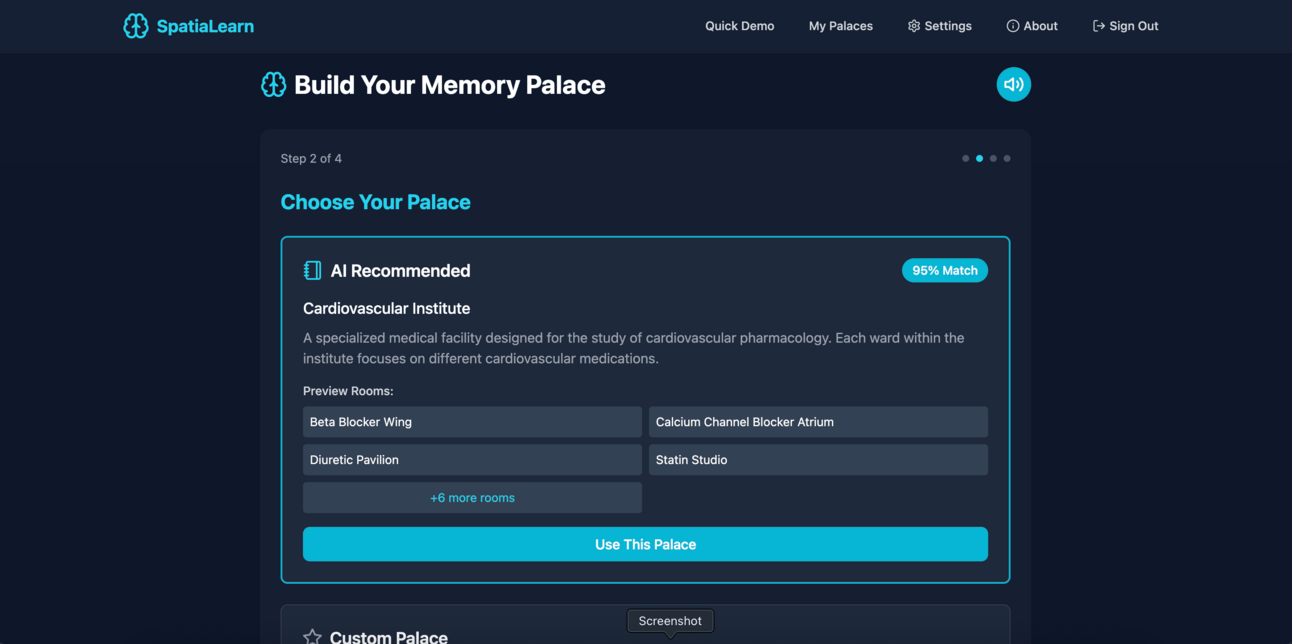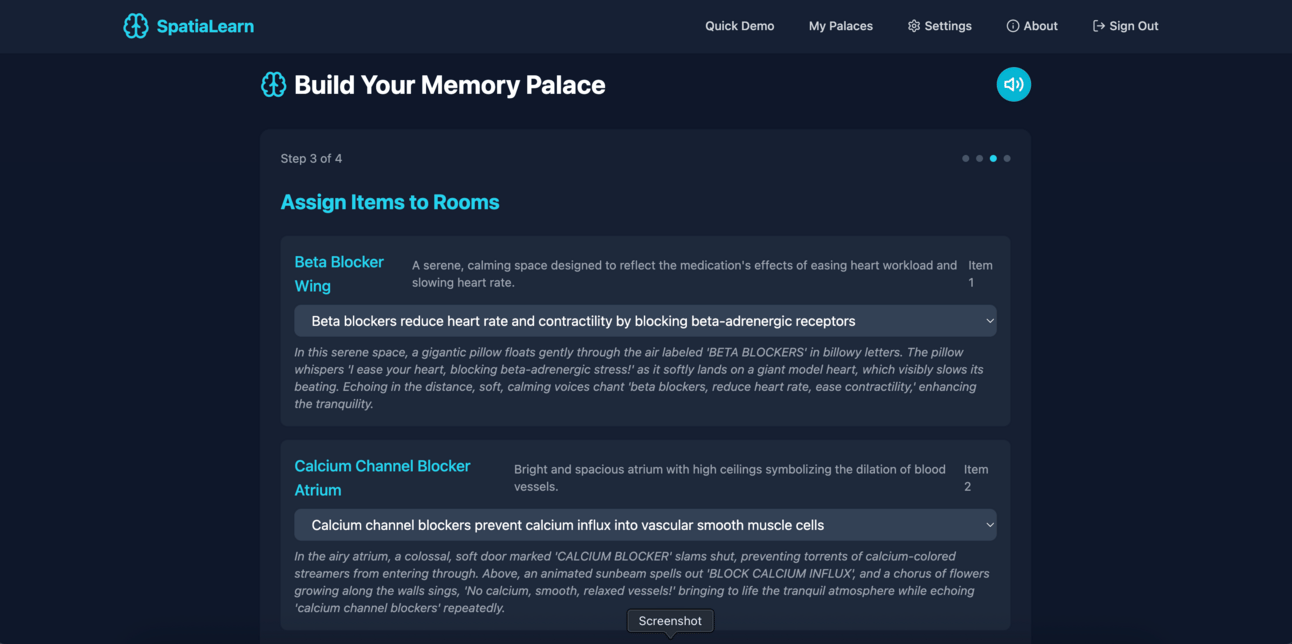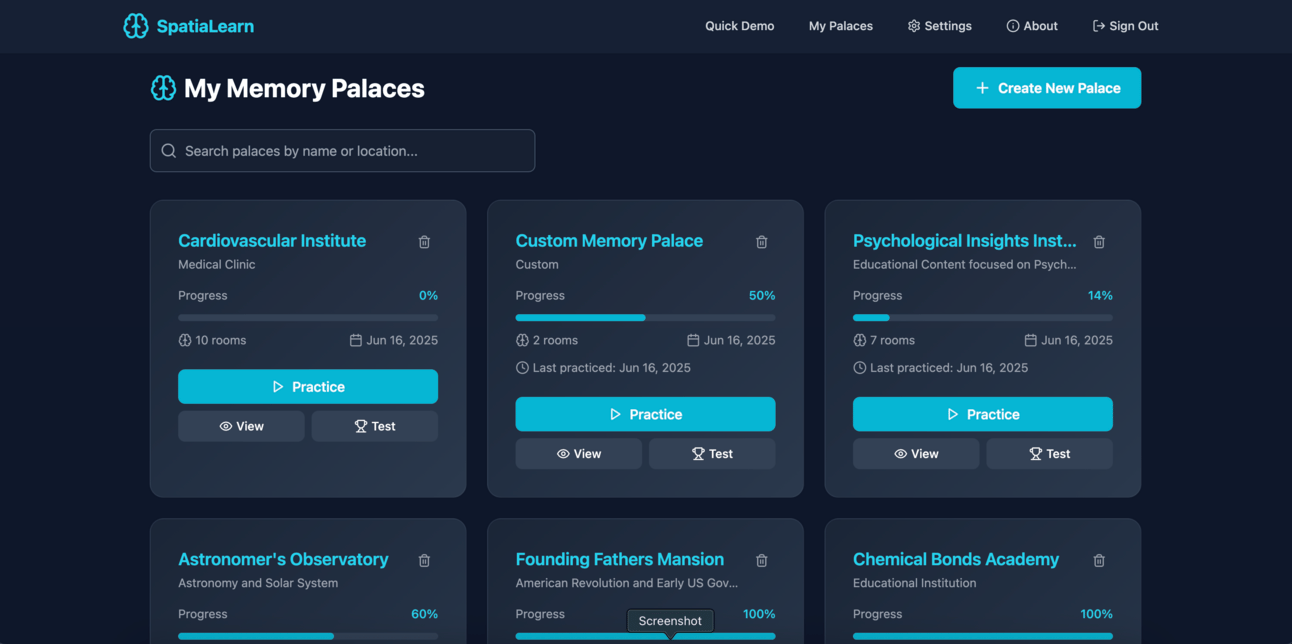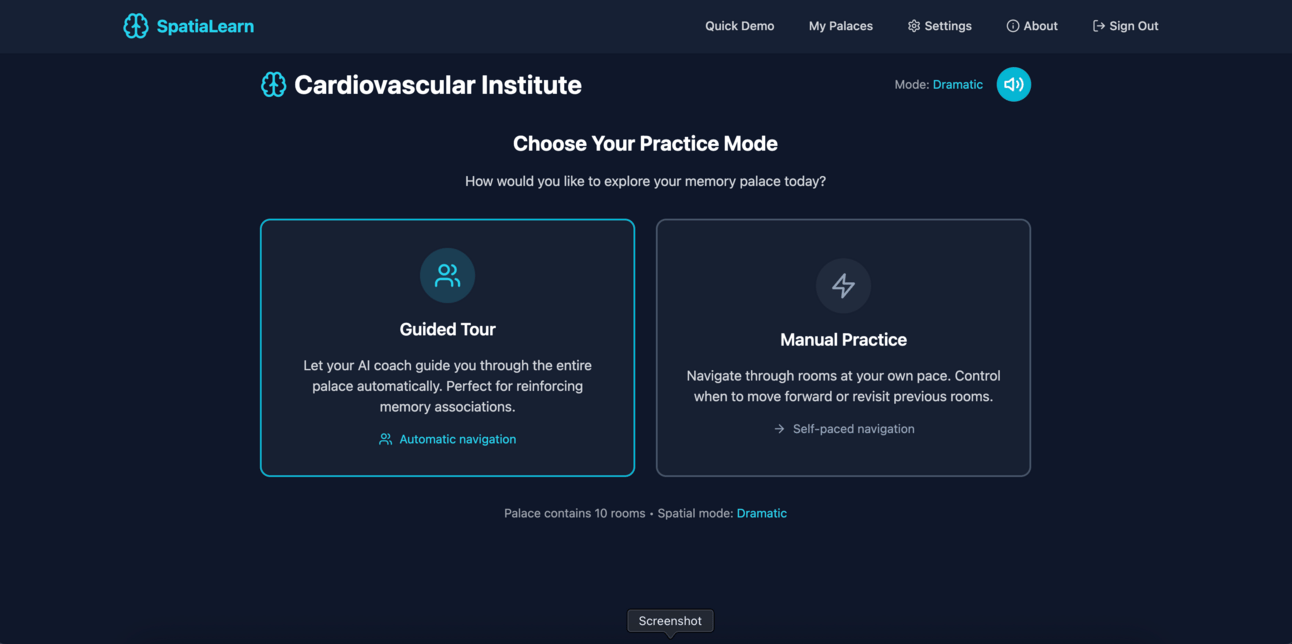- The Atomic Builder
- Posts
- What If AI Could Build the Perfect Place for You to Learn?
What If AI Could Build the Perfect Place for You to Learn?
I survived a hackathon and built something that could revolutionize learning. Here's what happened.
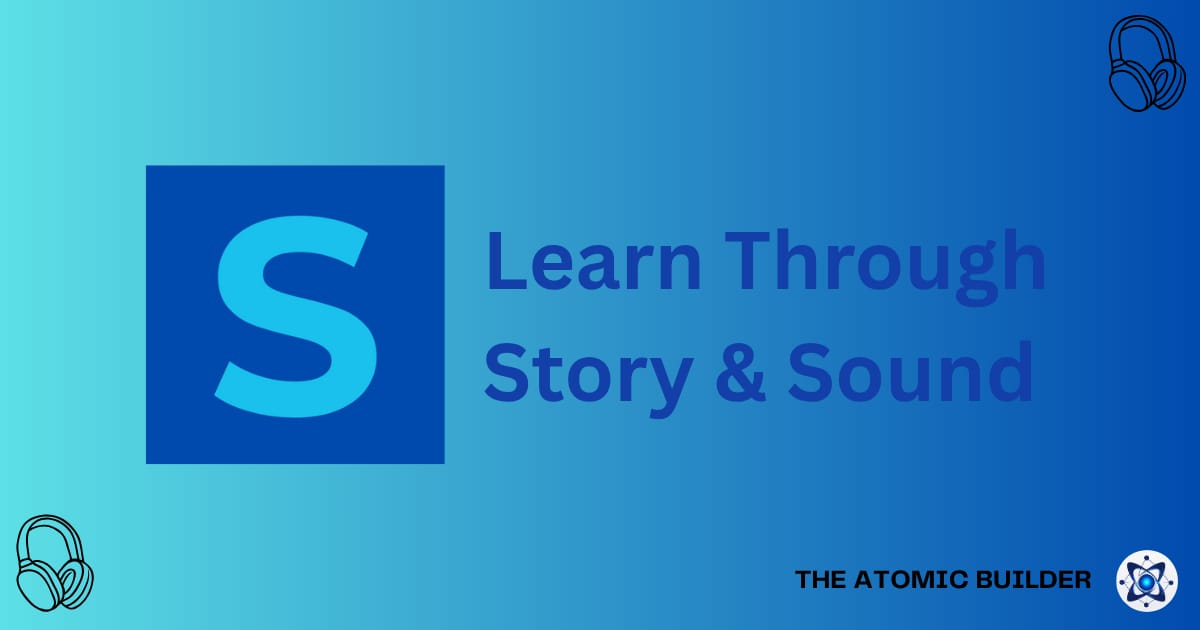
Hi, and welcome to The Atomic Builder!
Location: Still my kitchen table (but with better coffee)
Mission Status: Prototype survived, sanity questionable
Sugar Intake: Reduced to sustainable levels
Last week, I told you I was building SpatiaLearn, an AI-powered memory palace app / study aid, while surviving on mango lassi (and panic). I was fighting authentication errors, praying spatial audio would work on mobile, and honestly wasn't sure if any of it would actually come together.
Let’s not forget - I can’t write a single line of code (yes, not even hello world…)
Well, I have news. It works. It actually works bloody well!
I learned some expensive lessons along the way. We’ll come to that.
If you missed the first episode of this adventure, here's the context: I'm competing in Bolt.new's month-long (June) hackathon with 100,000+ creators. I’ve been trying to create the world's first AI-powered memory palace system that analyzes your study content and suggests the perfect learning environment.
I built something that genuinely surprised me.
Got this from a friend? Join other product managers, founders, and creators staying ahead of AI-powered product building. Subscribe to get The Atomic Builder every week.
What is SpatiaLearn?
For new readers, here's what I built:
AI-powered memory palace app that analyzes your learning content
Intelligent palace suggestions - AI recommends the perfect learning environment for your material
Complete learning system - Build palaces, practice with guided tours, test with voice recognition
Spatial 3D audio coaching - Feel like you're walking through actual rooms while learning
Works for any subject - Medical school, languages, professional exams, you name it
The breakthrough: Instead of forcing you to memorize random facts in random places, AI creates logical associations. Medical content gets a "Cardiovascular Institute," language learning gets cultural environments etc.
Why it matters: Memory palaces are ancient techniques used by memory champions, but they're hard to build effectively. My AI platform solves this by creating perfect associations automatically, using immersive audio to help you retain your content.
Now, here's what happened when I actually finished building it...

SpatiaLearn
It Actually Works…
The Holy Grail Demo Moment
Remember that breakthrough I mentioned when I entered cranial nerve anatomy (still sexy…) and watched the magic happen? Well, it gets better.
I've now tested SpatiaLearn with a med student, a language learner, and even my neighbour studying for his A’Levels. The pattern is always the same:
User enters content → AI analyzes in seconds → Perfect palace suggestion appears → User looks at me in disbelief.
Last week, a med student entered into SpatiaLearn: "Beta blockers reduce heart rate and contractility by blocking beta-adrenergic receptors" (i know, i know, just go with it…)
SpatiaLearn suggested: "Cardiovascular Institute" with specialized wings including the "Beta Blocker Wing", a "serene, calming space designed to reflect the medication's effects of easing heart workload and slowing heart rate."
The AI-Generated a memory scene that facilitates better recall by creating a narrative from the text to be memorized.
The student looked at me and said - “This makes perfect sense."
That's the moment I knew we had something real!
Database Hell & Other Plot Twists
But first, before getting carried away, I had to solve a fundamental problem...
When Local Storage Isn't Enough Anymore
Initially, I decided to build a quick and dirty version of the app using local storage so that I could test the basics fast. The app was working, my tests were impressive (did you doubt me?), but then I started asking obvious questions of my app: "Can I save my palaces and test scores?" "Will this work on my phone?"
Suddenly, my hackathon prototype needed to become a real app with real user accounts and persistent data.
Enter: Supabase integration (and the fun that went with it).
What I thought would be a simple upgrade turned into a long technical saga. Bolt.new's initial integration instructions were helpful, but the reality was messier than expected. In fairness, I’ve integrated Supabase in other apps, with ease - so I think it does depend on how far you’re pushing it.
The Big Blockers
Security policies gone rogue: I wanted the database to automatically create a user profile when someone signs up. Sounds simple, right? Wrong. The security system I set up to protect user data was so strict it started blocking the app's own automatic processes.
Connecting the dots (badly): I needed to link each memory palace to the person who created it. Should be straightforward - except the database has two different "user" tables and nobody tells you which one to use. When it breaks, I got helpful error messages like "something went wrong" with zero clues about what actually broke.
Playing detective with terrible clues: Every error message was basically "nope, didn't work" without explaining why. Is it a permission issue? A connection problem? A typo somewhere? I got to spend hours guessing, like debugging with a blindfold on.
It was a combination of Claude & ChatGPT 4.1 that helped dig me out of the hole I had found myself in.
Here's what I learned: The difference between a prototype and a product isn't features - it's all the invisible infrastructure that makes features actually usable by real people.
(Bolt have been incredibly receptive in taking on my feedback to improve the process!)
The Wake-Up Call That Changed Everything
How I Almost Became ElevenLabs' Most Expensive Customer 💰️
While wrestling with database architecture, another problem was brewing at lightning speed in the background... SpatiaLearn was working beautifully - maybe too beautifully.
The app generates AI voices for spatial audio coaching, creating immersive 3D experiences where you feel like you're walking through actual rooms. Every room visit, every practice session, every demo was calling ElevenLabs' API to generate fresh audio.
I woke up one morning to discover I'd burned through 103,742 ElevenLabs credits in a FEW HOURS... That might not sound like much, but here's the maths that made my coffee go cold: I'd need to charge $35-50/month per user, just to break even.
I had built something that worked perfectly but was economically impossible to scale.
This wasn't a $100K mistake (yet), but it was a clear path to bankruptcy if the app actually succeeded. The better SpatiaLearn performed, the faster I'd go broke.
Honestly, even at this stage, although it appeared bleak, I was pretty confident there would be a path forward - I just had to work out what that was…
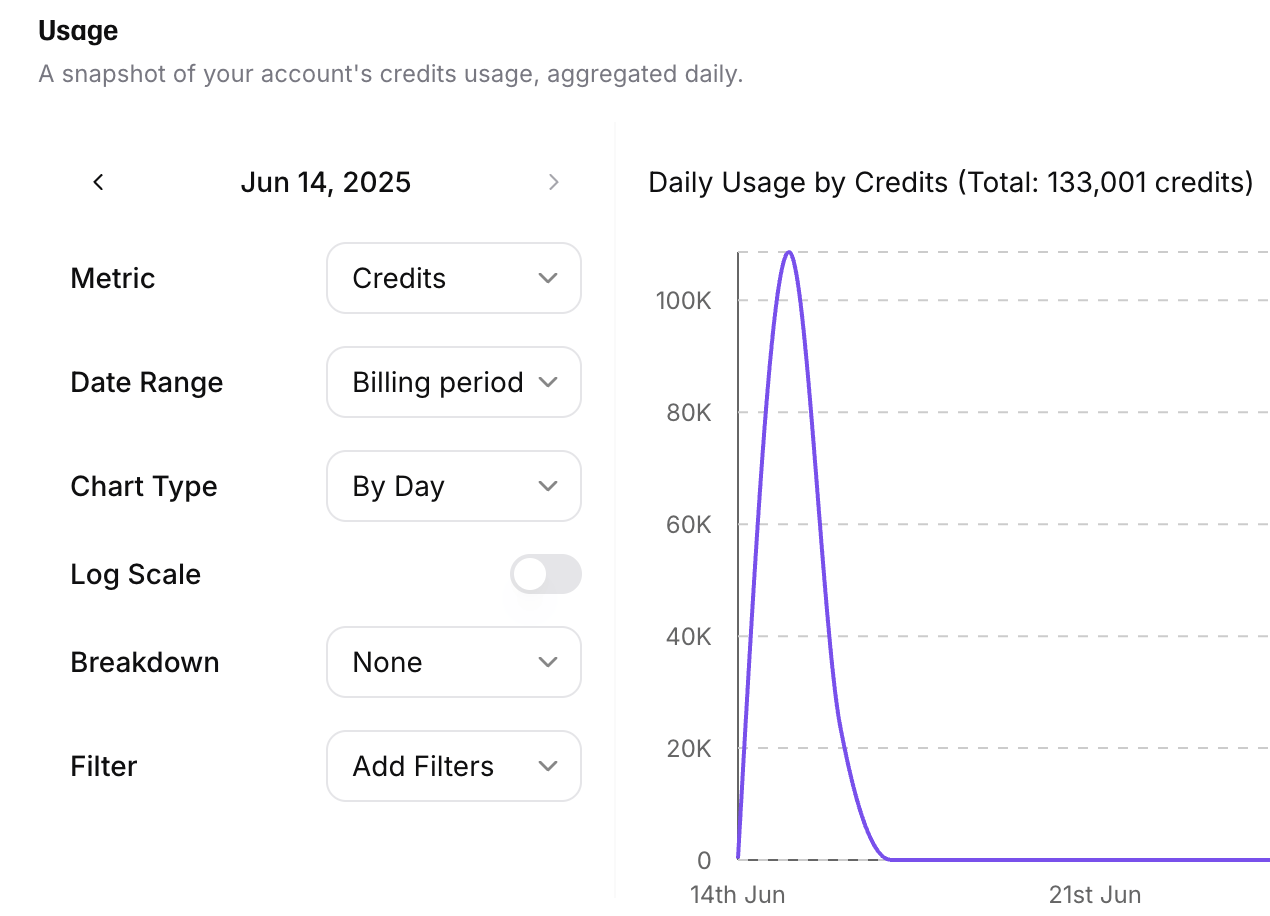
One Hundred Thousand Labs…My API usage hell
The Breakthrough That Saved Everything
How a Crisis Became a (Potential) Competitive Advantage
So, with the credit-burning crisis. I had two options:
Accept that SpatiaLearn would need expensive pricing ($35-50/month)
Find a way to dramatically reduce API costs
I chose option 2 and discovered something brilliant.
The solution was intelligent audio caching. Instead of regenerating the same content for every user, SpatiaLearn now:
Stores (already) generated audio in the browser's IndexedDB
Reuses audio across sessions
Only calls the API for genuinely new content hits
Persists cache across browser sessions
The impact was immediate:
Before: Every palace visit = fresh API call = mounting costs
After: Returning users get instant audio = zero additional cost
Business model: Sustainable pricing becomes possible?
But here's the thing - this "crisis" actually created a better user experience. Cached audio loads instantly, making the app feel faster and more responsive. Users practicing for exams over weeks get immediate audio without any loading delays, after that initial load and launch.
Sometimes your biggest problems reveal your biggest opportunities.
Reality Check
Hackathon vs. Real Product
So what actually shipped? Here's the breakdown:
✅ What Works Beautifully:
AI content analysis that genuinely understands context
Spatial audio that makes you feel like you're in different rooms
Complete learning flow: Build → Practice → Test with voice recognition
Professional UI that works on mobile as a PWA
User accounts with persistent palace storage
Audio caching that makes the economics viable
✅ What Exceeded Expectations:
The AI associations are often eerily perfect
Spatial audio works better on mobile than desktop
ElevenLabs voice technology is stunning
Early testers want to practice repeatedly (validation!)
Memory retention seems genuinely improved (anecdotal but promising…!)
⚠️ What's Still Rough:
Error handling could be more graceful
Some edge cases in voice recognition, occasionally calls to OpenAI / Eleven Labs fail
Eliminating latency (or UI messaging) for first time audio loading
Analytics to measure learning effectiveness
The Big Question
From Hackathon Prototype to Real Venture?
Here's where I am now: SpatiaLearn works. The technology is sound, the user experience is good (with potential for improvement) for an app I’ve built in 2 weeks (with a day job and a family), and the business model could be viable.
But now I face the biggest decision of this journey:
Do I turn this hackathon prototype into a real venture?
The opportunity is real:
Market validation: Promising early feedback
Differentiation: No competitor has AI-powered spatial memory palaces
Scalability: Caching solves the cost problem
Timing: AI learning tools are exploding in popularity
The challenge is equally real:
Business setup: Stripe integration, customer support
Feature expansion: Analytics, content libraries
Time commitment: Time is limited
Part of me wants to keep SpatiaLearn as an impressive portfolio piece and move on to the next experiment. Part of me thinks this could be the start of something significant.
I would love to hear from you.
If you try it out, what do you think of it?
Here’s How I Can Help You!
7 Things Every AI Builder Should Know
If I could go back to that first mango lassi-fueled night (good times…), here's what I'd tell my past self, keep a note of this, it may help you too:
1. Monitor API costs from day one. That innocent "let's see what happens" approach can get expensive fast. Set usage alerts and understand pricing before you scale.
2. Authentication is never simple. Plan for 3x longer than you think. User accounts, password resets, email verification - it's all more complex than it appears.
3. Users want persistence immediately. Don't even launch without a plan for saving user data. localStorage is not a database strategy (beyond MVP).
4. Demo magic ≠ Product reality. That perfect demo moment requires thousands of edge cases to be handled properly for real users.
5. Caching is your secret weapon. Especially with expensive APIs. It saves money and improves user experience simultaneously.
6. Mobile matters more than you think. Test early and often. Some features work better on mobile (spatial audio), others break completely (certain UI patterns).
7. Business model affects architecture. Think about pricing and costs from the beginning, not after you've built everything.
Bonus insight: The most valuable feedback comes from watching real users struggle with your app, not from friends being polite about your demo.
Final Thoughts
SpatiaLearn is live, working, and helping people learn. The hackathon submission is complete, and I'm genuinely proud of what I built in 14 (ish) days.
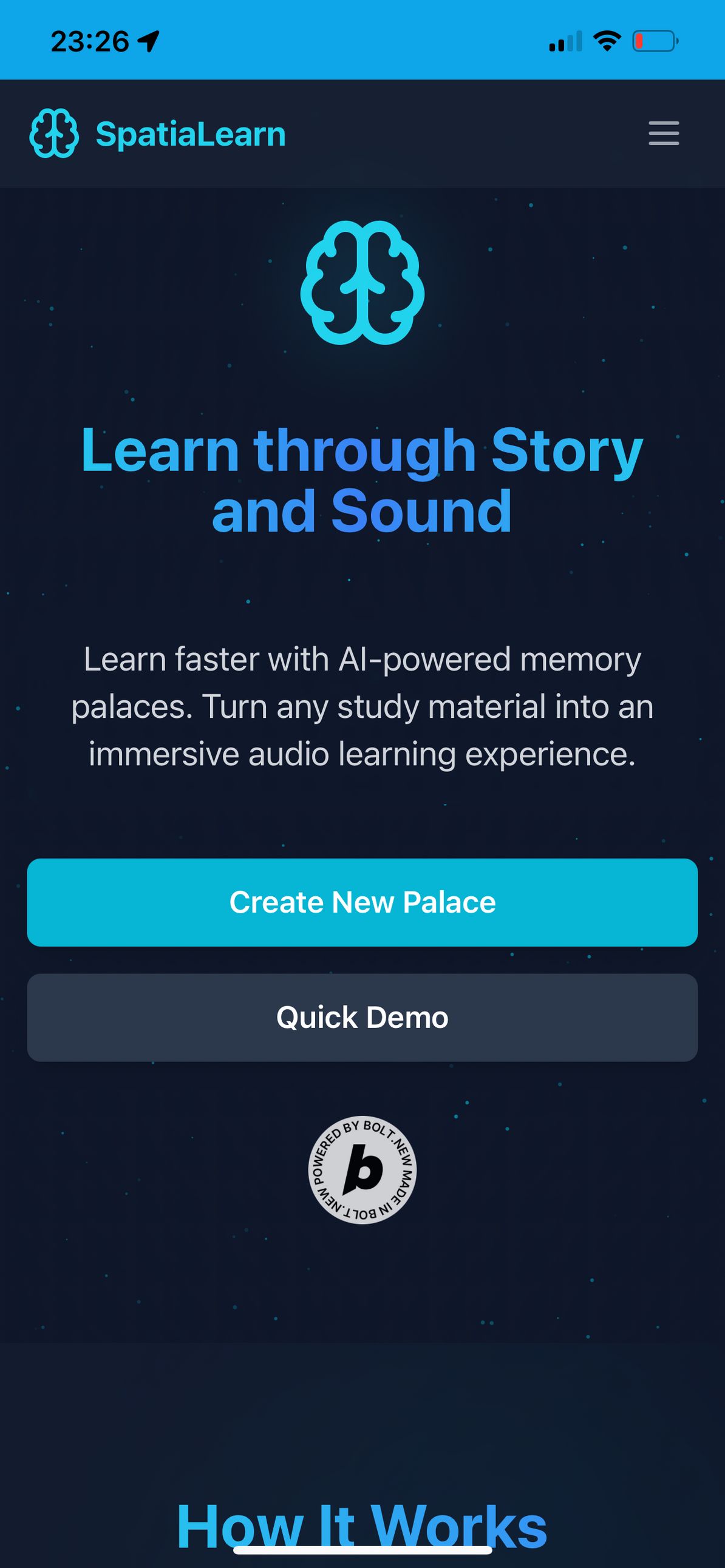 I need to… | 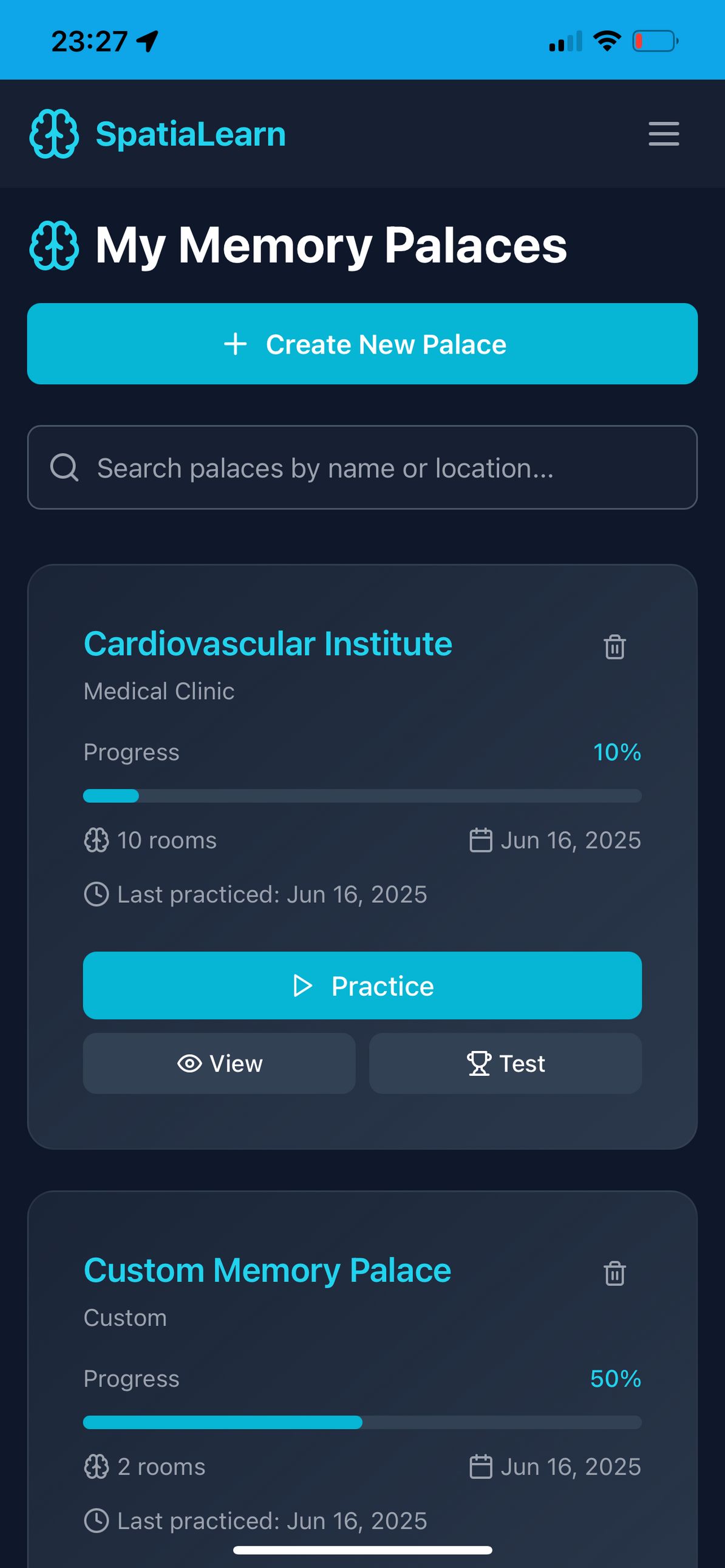 …charge my phone |
What happens next?
I'm leaning toward building something real. The user feedback has been positive, and the technology feels too promising to abandon. But I'd love your thoughts.
Reply and let me know: What would you expect to see in a learning platform like this? Would you pay for AI-powered memory palaces that actually help you remember what you learn?
The mango lassi intake continues at sustainable levels.
Until next time, keep experimenting, keep building, and as always - stay atomic. 👊
From the trenches (with better audio caching),
Faisal
This Week’s Build Beats 🎵
Each issue, we pair the newsletter with a track to keep you inspired while you build.
This week, because SpatiaLearn is about building architectural wonders in your mind…
🎧 “Castle on the Hill” – Ed Sheeran
Grab the playlist on Spotify - I add to it each week!
 | Thanks for Joining! I’m excited to help usher in this new wave of AI-empowered product builders. If you have any questions or want to share your own AI-building experiences (the successes and the failures), feel free to reply to this email or connect with me on socials. Until next time… Faisal |
P.S. Know someone who could benefit from AI-powered product building? Forward them this newsletter!
